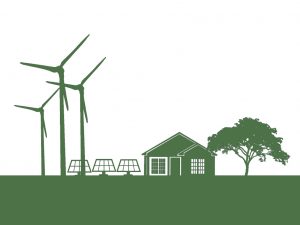Lake Chad’s unbroken response to climate change would naturally continue to drive cattle herders down south, to create strife with locals. Government has to understand this nexus.
Nigeria; and three other countries – Niger; Chad; and Cameroon, who shares the Lake Chad have seen systemic droughts; unemployment; and conflict over resources escalate within their territories in the last couple of years as a result of its drying waters.
From 1960, reports indicate that Lake Chad’s surface area has reduced by 90 per cent from 25,000 square kilometers to about 1500km2. Nonetheless the human population depending on it for their livelihoods has however increased from 3.5 million to over 40 million within the same period.
According to statistics, the surface area of the lake has reduced from its initial 25,000 square kilometers (km2) (9,700 square miles) to less than 1,500km2 (580 square miles) due largely to its waters drying up, and environment experts attribute this to increasing temperatures from global warming.
Following from this, farming; fishing; and pastoral residents on the edges of the lake now grapple with the consequences of climate change – a phenomenon the world considers its prime environmental distress.
During the last Paris Climate Conference in Marrakech Morocco, presidents of countries associated with the Lake Chad Basin, all sounded the alarm about the absolute necessity to address the crisis that is staring them and indeed the world from its drying up. They pointed to terrorism and forced migration as two of the stark realities from this.
“We cannot afford to fail,” said Paul Biya, president of Cameroon, to a full hall at the UN conference.
Biya’s call was amplified by Nigeria’s president, Mr. Muhammadu Buhari, whose country now faces a double-whammy – Boko Haram, and frequent pastoral clashes with local southern communities, from the development.
From its scorching impacts on the environment, the dwindling waters of the lake has equally stirred insecurity and chaos in Nigeria – a country the Lake Chad Commission said now houses about 60 per cent of the lake basin population.
The commission’s report also indicated that these communities of people comprising cattle herders have continued to move southwards from Kano and Maiduguri, their initial entry points, into Kogi; Benue; Ekiti; and Enugu, looking for more fertile soils to farm, and pasture on, but they’ve not been received well by locals.
Further away from the Boko Haram terrorists, the pastoral communities have equally continued to attract conflicts with local communities over pastureland, and clashes of interests between local farmers and herdsmen from this have increased with hundreds of people already dead from recorded confrontations.
Already, reports by local media show that more than 1,200 people died between April 2013 and July 2016 in Benue State – the worst hit state by the farmer-herder tensions.
Drawing a nexus, it would be germane however for authorities in Nigeria to consider that there are extensive contributions that climate change has introduced in these frequent clashes between cattle herders and farmers in the country.
While this is however without considerations to other potential sources of the tension, it would not be out of place for authorities in Nigeria to proactively think through this nexus in finding a good closure to the insecurity and tensions wrought by desperate herders migrating with their animals and disrupting lives in areas they did not use to go to before.





